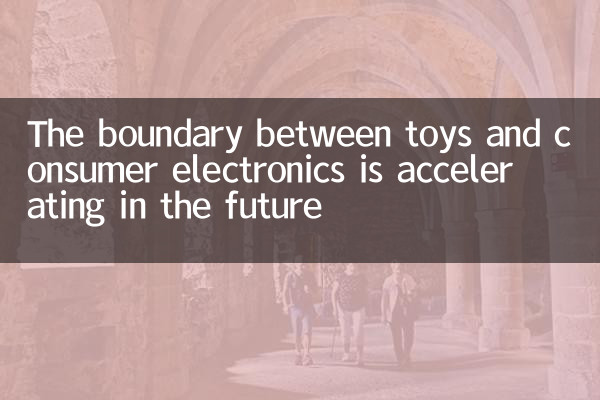The boundary between toys and consumer electronics is accelerating in the future
In the past 10 days, hot topics and hot content across the entire network have shown that the integration of toys and consumer electronic products is becoming a trend that cannot be ignored. From smart toys to educational robots to programmable building blocks, the boundaries of traditional toys are being redefined by technology. Here is our in-depth analysis of this trend.
1. Hot data: The trend of integration between toys and consumer electronics

| Hot Topics | Discussion popularity (index) | Representative Products |
|---|---|---|
| AI toys | 85,000 | Anki Cozmo, Lego Mindstorms |
| Educational Robots | 72,000 | Makeblock, UBTech Alpha |
| Wearable toys | 58,000 | Disney smartwatch, Pokémon GO Plus |
| AR/VR toys | 63,000 | Meta Quest Kids, Sony Toio |
2. Intelligence of toys: from entertainment to education
Traditional toys are usually mainly entertainment, but in recent years, with the development of artificial intelligence and Internet of Things technology, the functions of toys are expanding to education, socialization and skills development. For example,Anki CozmoNot only is it a robot toy, it can also allow children to learn basic computer science knowledge through programming.MakeblockThe robot suite combines STEAM educational philosophy, allowing children to master engineering and mathematical skills while playing.
3. Toyization of consumer electronics: Affinity of technology products
At the same time, consumer electronics products are also trying to break the cold sense of technology and attract young users through more friendly designs. For example,Meta Quest KidsVR content is specially designed for children, andSony ToioThen, the technology is made more interactive through programmable building blocks. These products not only meet entertainment needs, but also blur the boundaries between toys and electronics.
4. Future trends: Integration and innovation
In the future, the integration of toys and consumer electronics will be more obvious. Here are a few possible development directions:
| Trend direction | Potential products | Market forecast |
|---|---|---|
| AI+toys | Emotional interactive robot | The market size exceeds US$10 billion in 2025 |
| AR toys are popular | Combining virtual and real gaming equipment | Annual growth rate of 15% |
| Wearable toys | Health monitoring bracelet | Parental attention increased by 40% |
5. Conclusion: Behind the ablation of boundaries is the upgrade of demand
The disintegration of the boundary between toys and consumer electronics is essentially an upgrade of user needs. Children are no longer satisfied with simple entertainment, but hope that toys can bring more value for learning and interaction; parents pay more attention to the educational significance and safety of the products. Technology companies have also seen this trend and have used toys as entrances to the family market. In the future, whoever can better integrate entertainment and technology will be able to gain the upper hand in this rapidly changing market.
Whether it is toy manufacturers or consumer electronics brands, they need to rethink their product positioning. After all, in this era of blurred boundaries,The distinction between "playing" and "using" is no longer important. What is important is whether it can create real value for users.

check the details

check the details